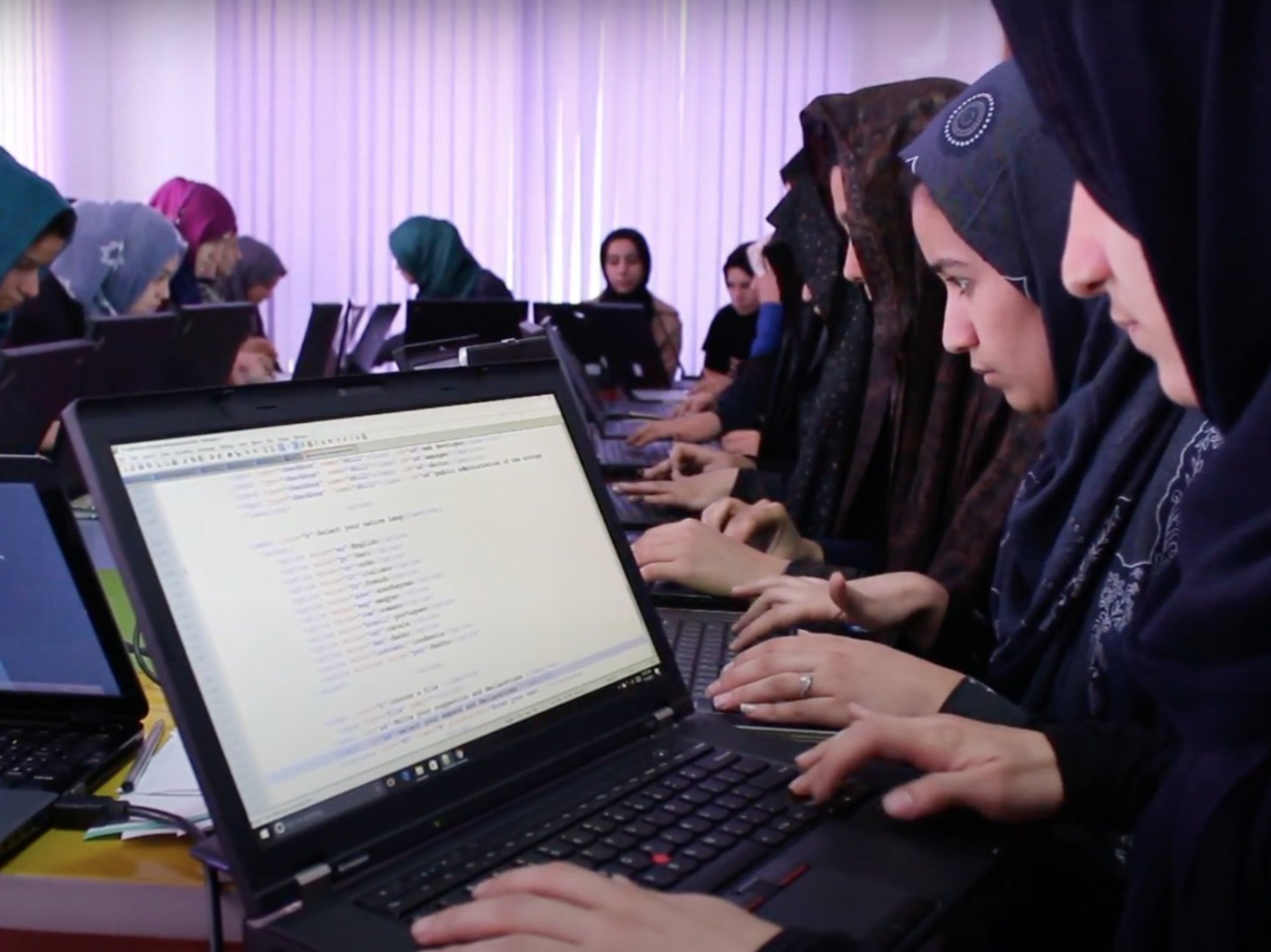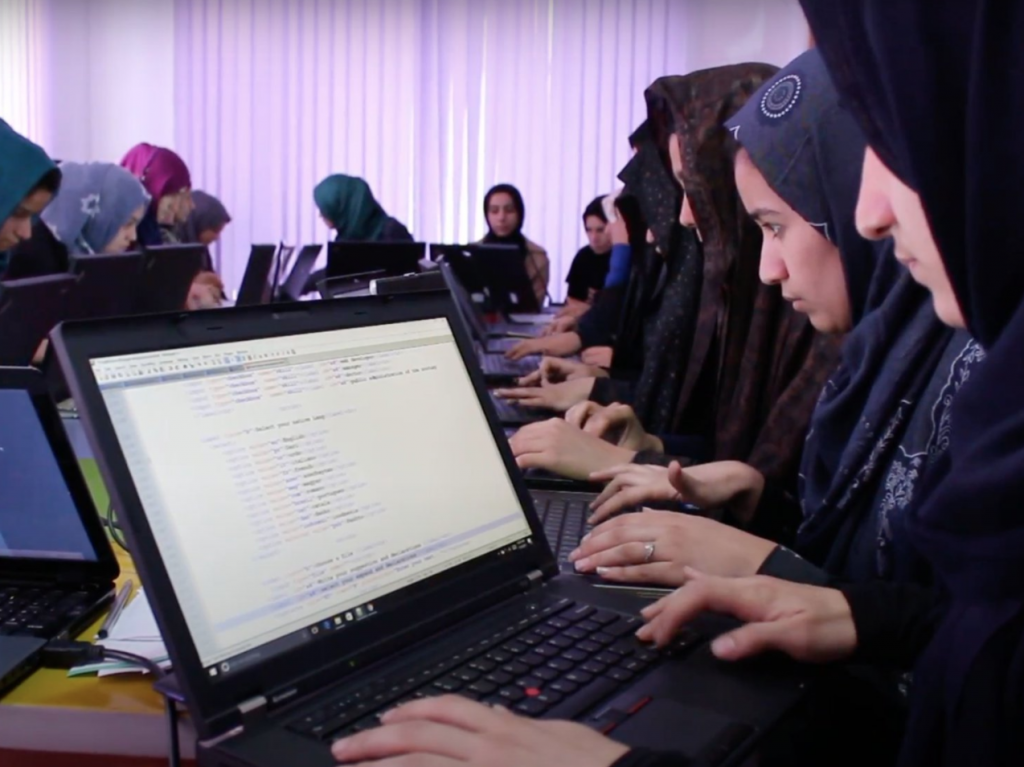
- Desperate Afghans are struggling to withdraw cash as the economy crumbles under the Taliban.
- The founder of a coding school for Afghan women told Insider that her students' families were going hungry.
- She devised an innovative solution — sending emergency payments to them in the form of crypto.
Afghanistan's economic collapse due to US sanctions and a shortage of cash as the Taliban chokes of bank withdrawals means millions of people can't afford to buy food or medicine.
But Fereshteh Forough, a New Hampshire-based Afghan social activist and founder of Code to Inspire, has devised an inventive workaround to help support needy students at her Herat coding school.
She's sending them cryptocurrency.

Forough set up the Code to Inspire school in Herat, Afghanistan, in 2015, to educate the city's young women about computer programming and becoming financially independent.
It was a success. Forough told Insider that more than 350 female students learned how to code, and close to 65% of graduates found jobs in their communities — many becoming their household's sole earner.
But it all changed when the Taliban took over Afghanistan in August 2021.
"The girls texted me that all of them had lost their jobs because of the Taliban's policies," Forough said. "And as the sole breadwinners, their families were falling apart."
Afghans are unable to withdraw large sums of cash
The economy in Afghanistan is in collapse.
The value of the currency tanking combined with the price of household essentials rocketing has led to widespread food insecurity, Insider reported. With foreign aid suspended, an overwhelming majority (98%) of Afghans don't have enough to eat, according to the World Food Programme.
The situation is particularly "horrifying" for the nation's women, Forough said, many of whom have been forced out of jobs and into poverty.
On top of being desperately hungry, she explained that many of her female students have struggled to pay for medicine and internet access.
Forough said she wanted to send emergency payments to these women, but, frustratingly, most of her transactions were blocked by Western Union and JPMorganChase. Once some of the money did eventually go through, often, her students were unable to withdraw cash at local banks.
Bank withdrawals are severely limited due to a shortage of paper money and the Taliban being unable to get its hands on the Afghan central bank's almost $10 billion in reserves that US sanctions have frozen.

As The Intercept first reported, Forough came up with an ingenious solution — sending emergency aid payments using cryptocurrency.
"We found that actually there are a bunch of local money exchanges in the financial district of Herat that are accepting crypto and they can cash it out for you in either afghanis or dollars," she said.
She helped her students create Binance accounts
Code to Inspire selected 100 of the neediest students and built a relationship with Binance — the world's largest crypto exchange — which agreed to sponsor three months of cash assistance to the students.
"We then helped all 100 girls to create a Binance account through Trust Wallet," Forough said.
At first, she explained, it was "very difficult" because many of them didn't have smartphones or lacked the technological literacy needed to create a wallet. But Code to Inspire put out an educational video to teach them how to.
Now some of the girls, she explained, have the crypto knowledge to immediately convert Binance to Tether USD (USDT) to try and circumvent massive fluctuations in value. USDT, as with other stablecoins, is pegged to the US dollar and is considered less volatile than other cryptocurrencies.
Forough said that donating cryptocurrencies holds many advantages for the women in Afghanistan, including a reduced risk in the money being confiscated.
"And if they got displaced from Afghanistan or any part of Afghanistan, they can also carry their finances with themselves everywhere they go," she continued. "That, to me, is empowering."
